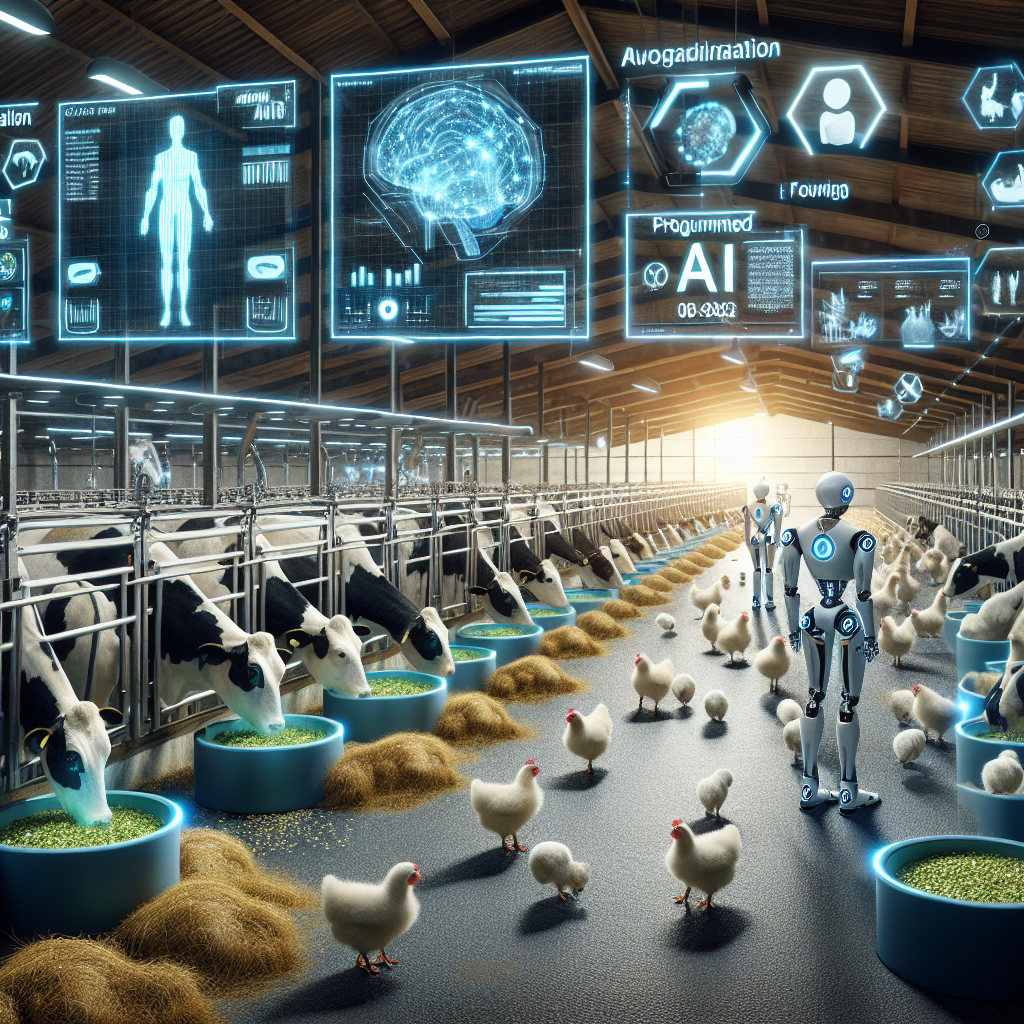The Impact of AI on Livestock Management
Artificial intelligence (AI) is revolutionizing the way livestock is managed and cared for on farms around the world. With the ability to analyze vast amounts of data and make decisions in real-time, AI is helping farmers improve the health and well-being of their animals, increase productivity, and reduce costs. In this article, we will explore the impact of AI on livestock management and how it is changing the way farmers operate.
AI in Livestock Monitoring
One of the key areas where AI is making a significant impact in livestock management is in monitoring the health and behavior of animals. By using sensors and cameras placed in barns and pastures, AI systems can track vital signs, activity levels, and feeding behaviors of individual animals. This data is then analyzed in real-time to detect any signs of illness or distress, allowing farmers to intervene quickly and provide the necessary care.
AI-powered monitoring systems can also detect early signs of disease outbreaks and alert farmers to take preventative measures to protect the health of the entire herd. By identifying issues early on, farmers can reduce the spread of disease and minimize the need for costly treatments.
AI in Livestock Feeding
Another area where AI is having a significant impact on livestock management is in feeding strategies. By analyzing data on the nutritional needs of individual animals, AI systems can create personalized feeding plans that optimize growth and productivity. This not only improves the health and well-being of the animals but also reduces feed costs and waste.
AI can also help farmers make better decisions about when and how much to feed their animals based on factors such as weather conditions, market prices, and animal behavior. By adjusting feeding schedules in real-time, farmers can ensure that their animals are getting the right nutrients at the right time, leading to improved growth rates and overall performance.
AI in Reproduction Management
Reproduction management is another area where AI is making a significant impact on livestock farms. By analyzing data on the reproductive health of individual animals, AI systems can predict the best time for breeding and optimize fertility rates. This allows farmers to maximize the number of offspring produced and improve the overall genetic quality of their herd.
AI can also help farmers identify and address fertility issues early on, allowing them to take corrective action and improve breeding success rates. By using AI to monitor reproductive health, farmers can reduce the need for costly fertility treatments and increase the overall efficiency of their breeding programs.
FAQs about AI in Livestock Management
Q: How does AI help farmers monitor the health of their livestock?
A: AI systems use sensors and cameras to track vital signs, activity levels, and feeding behaviors of individual animals. This data is analyzed in real-time to detect any signs of illness or distress, allowing farmers to intervene quickly and provide the necessary care.
Q: Can AI help farmers reduce the spread of disease in their herds?
A: Yes, AI-powered monitoring systems can detect early signs of disease outbreaks and alert farmers to take preventative measures to protect the health of the entire herd. By identifying issues early on, farmers can reduce the spread of disease and minimize the need for costly treatments.
Q: How does AI optimize feeding strategies for livestock?
A: By analyzing data on the nutritional needs of individual animals, AI systems can create personalized feeding plans that optimize growth and productivity. This not only improves the health and well-being of the animals but also reduces feed costs and waste.
Q: How does AI help farmers improve reproductive management on their farms?
A: AI systems analyze data on the reproductive health of individual animals to predict the best time for breeding and optimize fertility rates. This allows farmers to maximize the number of offspring produced and improve the overall genetic quality of their herd.
In conclusion, AI is transforming the way livestock is managed and cared for on farms around the world. By using advanced technologies to monitor health, optimize feeding strategies, and improve reproductive management, farmers can improve the health and well-being of their animals, increase productivity, and reduce costs. As AI continues to evolve, we can expect to see even greater benefits for the livestock industry in the years to come.

